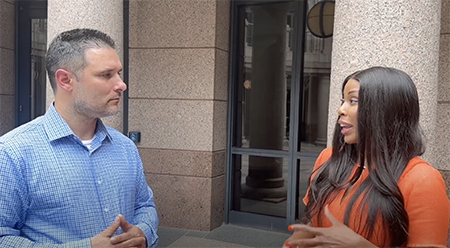Storm Protection Efforts Must Stay at the Fore
 Over the past few years, Texas has had more than its fair share of natural disasters, ranging from flash floods to tornados, wildfires and even ice storms. In fact, according to the Federal Emergency Management Agency, Texas averages a major disaster declaration about every eight months.
Over the past few years, Texas has had more than its fair share of natural disasters, ranging from flash floods to tornados, wildfires and even ice storms. In fact, according to the Federal Emergency Management Agency, Texas averages a major disaster declaration about every eight months.
But our state's coastline and location along the Gulf of Mexico make it especially vulnerable to violent storms, severe hurricanes and devastating floods. As we mark the beginning of hurricane season this week, we remember the tremendous damage caused by Hurricane Ike in 2008. And of course most recently, torrential rainfall left some neighborhoods across the area under several feet of water.
We know more major storms will come with a potentially higher price tag, and we can't afford to just stand by and wait. That's why leaders in our coastal communities and at all levels of government have taken a proactive approach to assess where Texas is most vulnerable and what options would be most effective to mitigate the threats posed by future storms.
Under the leadership of former Gov. Rick Perry, the Gulf Coast Community Protection and Recovery District was created to help counties develop consensus plans to protect themselves against the next Hurricane Ike. The initiative - carried out by leaders from Brazoria, Harris, Galveston, Chambers, Jefferson and Orange Counties - is working on a Storm Surge Suppression Study scheduled to be completed this summer to help guide both state and federal efforts. This initial step will provide a critical component to finding the best solution: a set of unified recommendations based on local input and insights from those impacted the most.
The Texas Legislature also is pursuing a plan of action to protect the coast. In 2013, a joint committee was created to study whether a coastal barrier system would offer adequate protection of the area, and if so, how feasible it would be to build. Last month, the committee met and heard from experts at the state and federal level, including the Texas General Land Office, about how to move forward with a solution. In addition to a coastal barrier system, the General Land Office is considering smaller infrastructure projects that would better prepare the coast for future storms - many of which could move forward without needing additional federal approval.
And at each step along the way, members of the Texas delegation in Congress have worked to ensure the federal government is doing all that it can to help guard against future storm damage. In addition to the ongoing state and local efforts, Congress authorized and funded the U.S. Army Corps of Engineers to begin a comprehensive study of our coast's vulnerabilities, a necessary first step toward a federal coastal protection project. Once completed, this study will assess where we most need storm protection and how to mitigate future damage using federal resources.
Legislation has been introduced in both Chambers to help speed up this process. The bill, called the Corps' Obligation to Assist in Safeguarding Texas, or COAST Act, directs the Corps to incorporate the findings from studies already developed at the local level; by doing this, the federal government won't waste precious time duplicating work Texans have already done. The legislation also would allow the final recommendations to proceed without additional congressional authorization, eliminating a bureaucratic hurdle so that construction on a federal coastal protection project can begin faster.
Protecting our Gulf Coast will require a coordinated response among local, state and federal governments. There's no doubt that this is a big undertaking, and we each have a unique role to play. We remain confident that the country's smartest minds involved in studying our coast, making recommendations and ultimately building the infrastructure we need, will arrive at a unified approach that garners the support of the entire region. And once they do, together we will continue to fight in Austin and Washington to ensure our coastal communities will flourish for generations to come.
Originally published on the Houston Chronicle. Coauthored by U.S. Rep. Randy Weber and State Sen. Larry Taylor.







